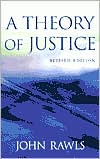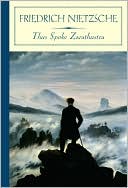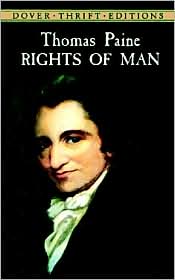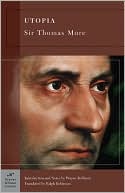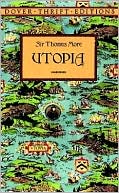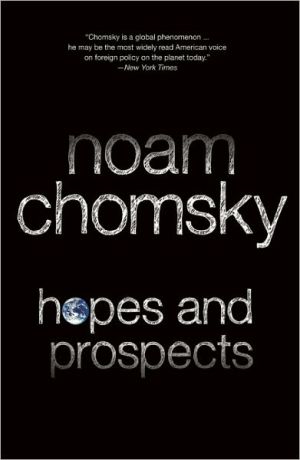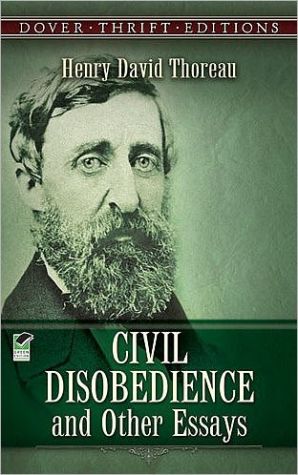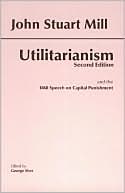A Theory of Justice: Revised Edition
Since it appeared in 1971, John Rawls's A Theory of Justice has become a classic. The author has now revised the original edition to clear up a number of difficulties he and others have found in the original book.\ Rawls aims to express an essential part of the common core of the democratic tradition—justice as fairness—and to provide an alternative to utilitarianism, which had dominated the Anglo-Saxon tradition of political thought since the nineteenth century. Rawls substitutes the ideal...
Search in google:
Since it appeared in 1971, John Rawls's A Theory of Justice has become a classic. The author has now revised the original edition to clear up a number of difficulties he and others have found in the original book.Rawls aims to express an essential part of the common core of the democratic tradition—justice as fairness—and to provide an alternative to utilitarianism, which had dominated the Anglo-Saxon tradition of political thought since the nineteenth century. Rawls substitutes the ideal of the social contract as a more satisfactory account of the basic rights and liberties of citizens as free and equal persons. "Each person," writes Rawls, "possesses an inviolability founded on justice that even the welfare of society as a whole cannot override." Advancing the ideas of Rousseau, Kant, Emerson, and Lincoln, Rawls's theory is as powerful today as it was when first published. New York Times Book Review In his magisterial new work...John Rawls draws on the most subtle techniques of contemporary analytic philosophy to provide the social contract tradition with what is, from a philosophical point of view at least, the most formidable defense it has yet received...[and] makes available the powerful intellectual resources and the comprehensive approach that have so far eluded antiutilitarians. He also makes clear how wrong it was to claim, as so many were claiming only a few years back, that systematic moral and political philosophy are dead...Whatever else may be true it is surely true that we must develop a sterner and more fastidious sense of justice. In making his peerless contribution to political theory, John Rawls has made a unique contribution to this urgent task. No higher achievement is open to a scholar.— Marshall Cohen
Ch. IJustice as fairness3Ch. IIThe principles of justice54Ch. IIIThe original position118Ch. IVEqual liberty195Ch. VDistributive shares258Ch. VIDuty and obligation333Ch. VIIGoodness as rationality395Ch. VIIIThe sense of justice453Ch. IXThe good of justice513
\ ChoiceRawls's Theory of Justice is widely and justly regarded as this century's most important work of political philosophy. Originally published in 1971, it quickly became the subject of extensive commentary and criticism, which led Rawls to revise some of the arguments he had originally put forward in this work...This edition will certainly become the definitive one; all scholars will use it, and it will be an essential text for any academic library. It contains a new preface that helpfully outlines the major revisions, and a 'conversion table' that correlates the pagination of this edition with the original, which will be useful to students and scholars working with this edition and the extensive secondary literature on Rawls's work. Highly recommended.\ — J. D. Moon\ \ \ \ \ \ Times Literary Supplement[Rawls] has elucidated a conception of justice which goes beyond anything to be found in Kant or Rousseau. It is a convincing refutation, if one is needed, of any lingering suspicions that the tradition of English-speaking political philosophy might be dead. Indeed, his book might plausibly be claimed to be the most notable contribution to that tradition to have been published since Sidgwick and Mill.\ \ \ \ CivilizationWith the simple carpentry of its arguments, its egalitarian leanings, and its preoccupation with fairness, Rawls's classic 1971 work, A Theory of Justice, is as American a book as, say, Mark Twain's The Adventures of Huckleberry Finn.\ — Will Blythe\ \ \ \ \ \ ChoiceRawls's Theory of Justice is widely and justly regarded as this century's most important work of political philosophy. Originally published in 1971, it quickly became the subject of extensive commentary and criticism, which led Rawls to revise some of the arguments he had originally put forward in this work...This edition will certainly become the definitive one; all scholars will use it, and it will be an essential text for any academic library. It contains a new preface that helpfully outlines the major revisions, and a 'conversion table' that correlates the pagination of this edition with the original, which will be useful to students and scholars working with this edition and the extensive secondary literature on Rawls's work. Highly recommended.\ — J. D. Moon\ \ \ \ \ CivilizationWith the simple carpentry of its arguments, its egalitarian leanings, and its preoccupation with fairness, Rawls's classic 1971 work, A Theory of Justice, is as American a book as, say, Mark Twain's The Adventures of Huckleberry Finn.\ — Will Blythe\ \ \ \ \ \ New RepublicEnlightenment comes in various forms, sometimes even by means of books. And it is a pleasure to recommend...an indigenous American philosophical masterpiece of the first order...I mean...to press my recommendation of [this book] to non-philosophers, especially those holding positions of responsibility in law and government. For the topic with which it deals is central to this country's purposes, and the misunderstanding of that topic is central to its difficulties...And the central idea is simple, elegant, plausible, and easily applied by anybody at any time as a measure of the justice of his own actions.\ — Peter Caws\ \ \ \ \ \ New York Times Book ReviewIn his magisterial new work...John Rawls draws on the most subtle techniques of contemporary analytic philosophy to provide the social contract tradition with what is, from a philosophical point of view at least, the most formidable defense it has yet received...[and] makes available the powerful intellectual resources and the comprehensive approach that have so far eluded antiutilitarians. He also makes clear how wrong it was to claim, as so many were claiming only a few years back, that systematic moral and political philosophy are dead...Whatever else may be true it is surely true that we must develop a sterner and more fastidious sense of justice. In making his peerless contribution to political theory, John Rawls has made a unique contribution to this urgent task. No higher achievement is open to a scholar.\ — Marshall Cohen\ \ \ \ \ \ Times Literary Supplement[Rawls] has elucidated a conception of justice which goes beyond anything to be found in Kant or Rousseau. It is a convincing refutation, if one is needed, of any lingering suspicions that the tradition of English-speaking political philosophy might be dead. Indeed, his book might plausibly be claimed to be the most notable contribution to that tradition to have been published since Sidgwick and Mill.\ \ \ \ \ Thomas NagelThe writings of John Rawls, whom it is now safe to describe as the most important political philosopher of the twentieth century, are very different. They owe their influence to the fact that their depth and their insight repay the close attention that their uncompromising theoretical weight and erudition demand. \ The New Republic\ \ \ \ \ \ New York Times Book ReviewJohn Rawls draws on the most subtle techniques of contemporary analytic philosophy to provide the social contract tradition with what is, from a philosophical point of view at least, the most formidable defense it has yet received ...[and] makes available the powerful intellectual resources and the comprehensive approach that have so far eluded antiutilitarians.\ — Marshall Cohen\ \ \ \ \ \ New RepublicI mean ...to press my recommendation of [this book] to non-philosophers, especially those holding positions of responsibility in law and government. For the topic with which it deals is central to this country's purposes, and the misunderstanding of that topic is central to its difficulties.\ — Peter Caws\ \ \ \ \ \ New York Review of BooksThe most substantial and interesting contribution to moral philosophy since the war.\ — Stuart Hampshire\ \ \
